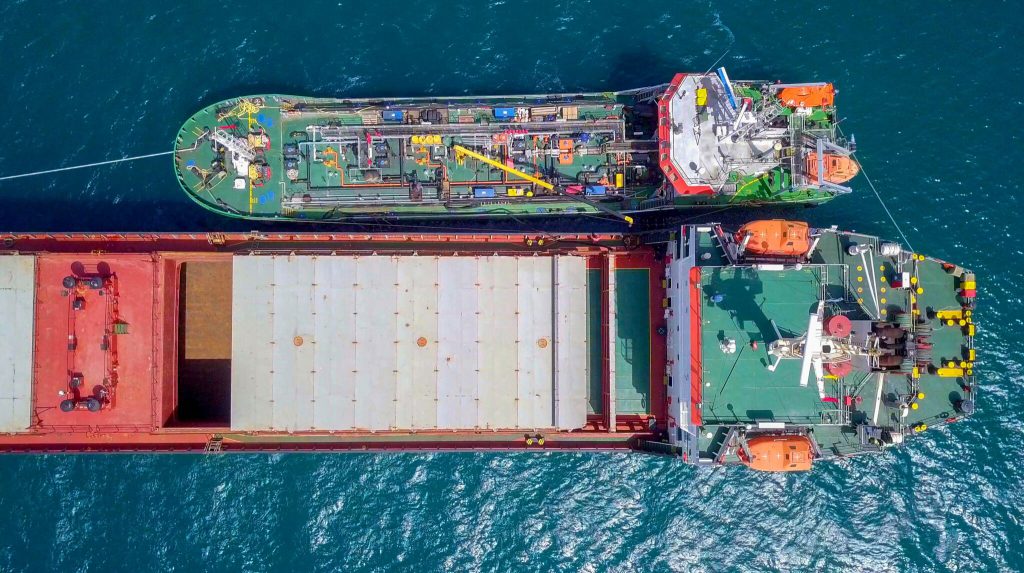
“Refuelling at sea, Aerial image of a Small Oil products ship fuelling a large Bulk carrier” by liorpt, iStock
| Zero Emission Shipping Project | |
|---|---|
| Name: | Port Scalable Zero-Emission Fuel Supply |
| Project Status: | In Progress |
| Point of Contact: | Bianca Garvin (GMF) |
| Pillar: | Fuels |
This project aims to produce an industry-validated, modelling based assessment of the cost and ability for 20 key global bunker ports to supply hydrogen-based fuels by 2030. Kicked off in early 2023, and co-led by the Global Maritime Forum and Rocky Mountain Institute, work is ongoing to build a techno-economic model to assess the cost and availability for ports to bunker ammonia, methanol, and hydrogen. Next steps involve validation workshops, refining, and testing of the analysis in preparation for a launch at COP28.
Project Objective:
Produce an industry-validated, modelling based assessment of the cost and ability for the top 20 global bunker ports to supply hydrogen-based fuels by 2030
Project milestones:
- In the first half of 2023, the project was officially kicked off, and the project plan and scope was finalized. An initial techno-economic model for ammonia, methanol and hydrogen is being completed, which will be the foundation for the analysis. The study investigates scalable zero emission fuel (SZEF) supply across major ports around the world and will create port “archetypes” to translate findings more easily to similar ports around the world.
- There is regular dialogue with a public-private sounding board group from across the supply chain, including energy producers, governments, ports, and bunker suppliers.
- In the second half of 2023 there will be validation workshops and calls to refine, test and validate analysis. The report will be finalized and launched at COP28, followed by a dissemination of results via various channels.
- There is work ongoing with the Fuels Pillar, US Department of Energy, and National Renewable Energy Laboratory (NREL) to produce a subsequent study on the cost and availability for the ports to supply biofuels, likely to kick off in late 2023/ early 2024.